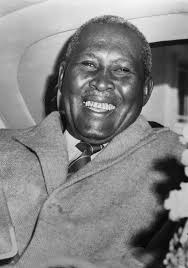Introduction
Albert Luthuli remains a significant figure in South African history, symbolizing the struggle against apartheid and fighting for justice and equality. As the first African to be awarded the Nobel Peace Prize in 1960, his efforts and leadership have left an indelible mark on the journey towards a democratic South Africa. His relevance continues to resonate today, as South Africans reflect on the sacrifices made during the liberation struggle.
Early Life and Career
Albert John Luthuli was born on 21 July 1898 in Bulawayo, Zimbabwe. He later moved to South Africa, where he completed his education and eventually became a teacher. Luthuli joined the African National Congress (ANC) in 1944 and quickly rose through the ranks due to his dedication to the anti-apartheid movement. His experience as a Christian minister also influenced his belief in nonviolent resistance.
Leadership in the ANC
In 1952, Luthuli was elected as the president-general of the ANC. His leadership saw him spearheading crucial campaigns such as the Defiance Campaign against unjust laws. Luthuli’s commitment to peaceful resistance was a beacon of hope during a time of increasing tension and violence in the country.
Nobel Peace Prize and Global Recognition
Luthuli’s efforts were recognized internationally when he was awarded the Nobel Peace Prize in 1960. This accolade not only acknowledged his leadership in the struggle for equality but also shone a light on the injustices faced by the black population in South Africa. His eloquent speeches and writings helped to mobilize global support against apartheid and solidified his role as a moral leader on the international stage.
Challenges and Legacy
Despite his global acclaim, Luthuli faced numerous challenges, including restrictions on his movements and surveillance by the apartheid government. He was often under pressure to renounce violent resistance, which he steadfastly opposed. His legacy includes the principles of nonviolence, social justice, and collective activism that continue to inspire generations of South Africans and individuals worldwide seeking justice and human rights.
Conclusion
Albert Luthuli’s life and work embody the spirit of resilience and hope in the face of adversity. As South Africa commemorates his contributions to the anti-apartheid struggle, it serves as a reminder of the importance of leaders who advocate for peace and justice in their communities. His story continues to teach us the power of peaceful resistance and the ongoing quest for equality in society. As future generations engage in social justice movements, they can draw inspiration from Luthuli’s unwavering commitment to a just and equitable world.


